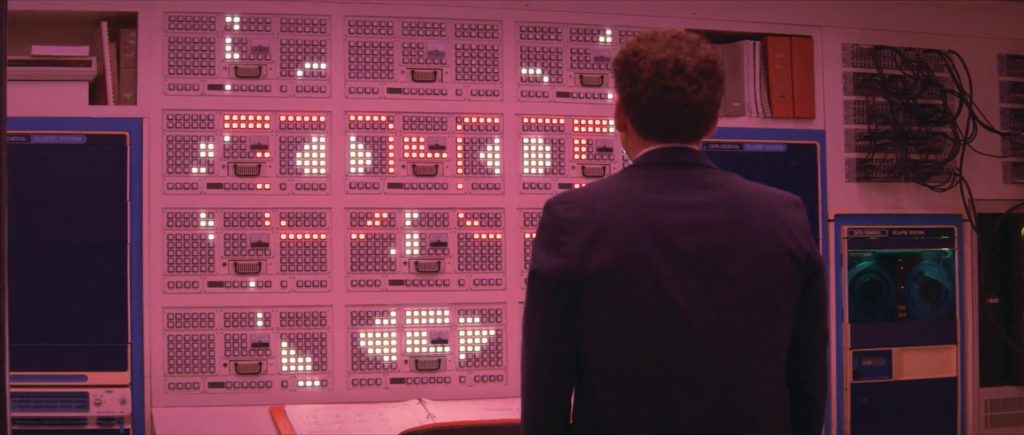As anticipated, the interrogations continue from the previous episode. It’s now the turn of everyone else to be questioned and scored although we as viewers are more interested in Owen’s responses, which explains why the others are barely given any attention. This time, Owen did indeed consume the pill and experiences dramatic alienating from the world and people around him. He’s probably so convinced of the other reality he spent a lifetime in, he starts distancing himself from his dominating in-dream wife. Ironically, Annie is the one who’s trying to establish contact with Owen now when she was the one who pushed him away in the season opener.
We also no longer need to speculate on Owen’s condition. Mantleray’s diagnosis lays out in clear terms that Owen has paranoid schizophrenia, delusional identity construct and perpetual cowardice. That last bit is particularly heartbreaking as Owen sort of resigns to his illness and walks back to his pod with droopy shoulders and a general grudging look, convinced the world wouldn’t be affected in the slightest if he were to not exist. Quite a contrast from the first episode where he was convinced he’d save the world. His tremors and hallucinations have also disappeared while he’s in the facility although that could change once the trials are over.
 As Owen and Annie revel in their back and forth, some intriguing things come to the limelight about Mantleray. Turns out the supercomputer has been imbibed with the personality and voice of his own real-life mother with whom he shares a strange, at times repugnant, bond. As the mother, Field is the world’s finest therapist and served as the inspiration for Mantleray to develop a pill that will eliminate the need for people to visit therapy in times of need. With the supercomputer now programmed to feel emotion, it starts to increasingly resemble HAL from 2001: A Space Odyssey although it hasn’t attained that level of malice yet.
As Owen and Annie revel in their back and forth, some intriguing things come to the limelight about Mantleray. Turns out the supercomputer has been imbibed with the personality and voice of his own real-life mother with whom he shares a strange, at times repugnant, bond. As the mother, Field is the world’s finest therapist and served as the inspiration for Mantleray to develop a pill that will eliminate the need for people to visit therapy in times of need. With the supercomputer now programmed to feel emotion, it starts to increasingly resemble HAL from 2001: A Space Odyssey although it hasn’t attained that level of malice yet.
In its current format, the show could virtually continue with numerous realities and setups at its disposal. We get a hint of this in the final moments when Annie enters the third and final reality resembling a fantasy world. The sharp structuring and writing mean the showrunners are free to imagine Annie and Owen’s dream world as being anything from a spy-thriller to a science-fiction based alien invasion to a family drama to an action-adventure on the lines of Indiana Jones or Uncharted. All they’d need to do is to come up with a justification for a longer trial of say, 5 instead of three consecutive drugs (D, E, G, F, H?) and they’re set.
The fact that all episodes have been helmed by a singular director Cary Joji Fukunaga brings a sense of tonal consistency into the proceedings. Episodes all feel like a part of a continuous narrative, like a 6 hour movie broken down for the sake of a miniseries, with some cliffhangers thrown in for good measure. Checking the writer’s list reveals largely three people involved in the day-to-day writing – Patrick Somerwille and Caroline Williams with others assisting on an episode basis. This setup, evocative of Netflix’s Stranger Things ensures things connect well from one episode to the next.
Whether it decides to have a second season following this approach is debatable at best. For now, I’m excited to see if the supercomputer GRTA turns evil and unleashes some madness that traps everyone in a perpetual alternate reality. Despite a slow start, Maniac is getting gradually gripping and I hope the show finishes on a high-point leaving us thirsty for more.
Overall Score: 8.5 out of 10.0
We’re doing individual episode reviews of Maniac. Even though all episodes are out on Netflix, viewers may want to savor the show one episode at a time. These episode reviews may contain spoilers so discretion is advised while reading them.





